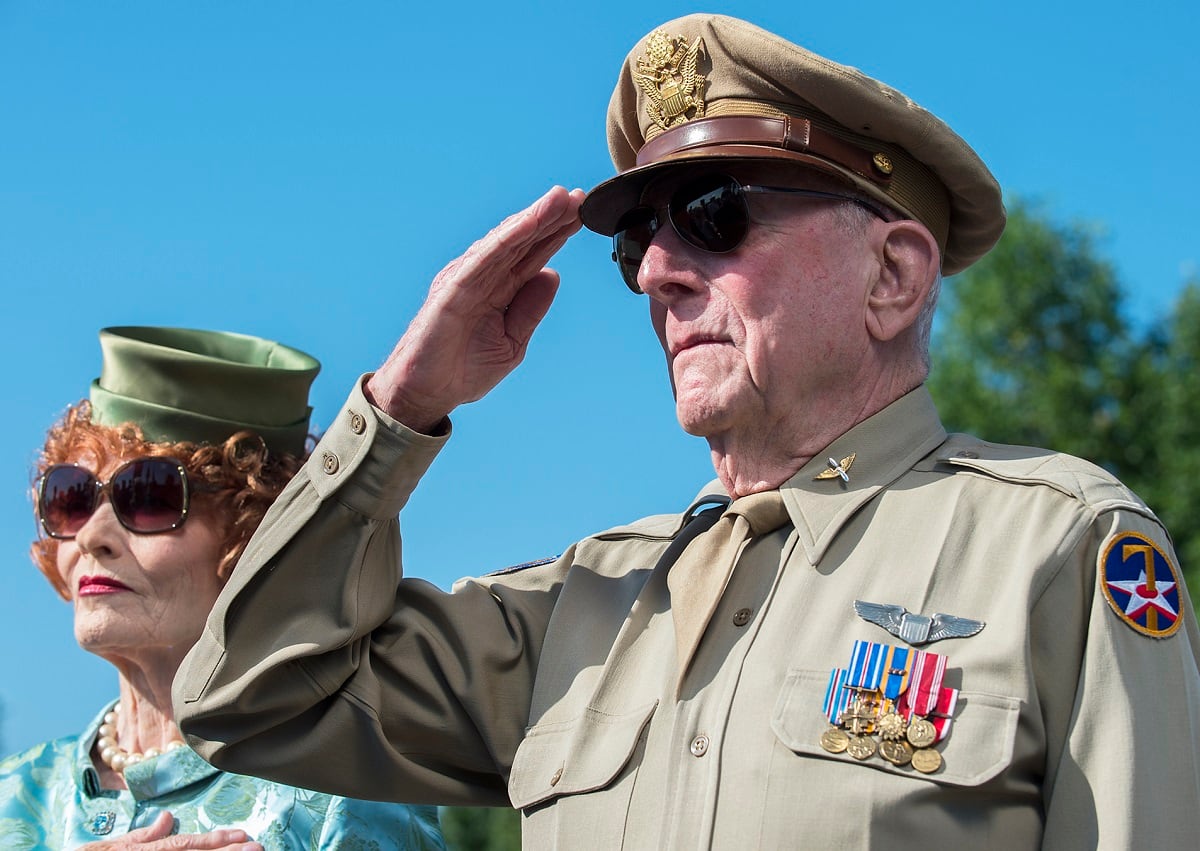The fighter pilot known for flying the last combat mission of World War II has died at the age of 93.
Jerry Yellin, a captain in the 78th Fighter Squadron of the Army Air Corps, died on Dec. 21.
During World War II, Yellin flew his P-51 Mustang from Iwo Jima to attack Japanese airfields near Tokyo, according to HistoryNet.
Yellin and his wingman, 2nd Lt. Philip Schlamberg, took off on Aug. 14, 1945, hoping their mission would be called off if Japan surrendered. Yellin and Schlamberg never received word of the surrender, so they continued their bombing mission.
“When we got back to Iwo Jima from Japan, we found out that the war had been over for three hours while we were strafing,” Yellin said in an oral history documented by the Library of Congress.
Schlamberg, who had told Yellin he had a bad feeling about surviving the mission, disappeared and was presumed dead. Schlamberg is considered one of the last casualties of World War II.
Yellin, who had lung cancer, died at his son Steven’s home in Orlando, the Washington Post reported.

Originally from Newark, New Jersey, Yellin was working at a steel mill to save money for college when Japanese forces bombed Pearl Harbor on Dec. 7, 1941. He enlisted in the Army Air Corps two months later — on his 18th birthday.
Sixteen of the airmen Yellin flew with were killed, including Schlamberg, but Yellin found a temporary way to cope with the loss.
“I never thought that these guys were killed, [just] transferred to another squadron and that we’d meet again one day,” he told the Washington Times in August. “That’s the way I got through the war. The seriousness of the loss wasn’t felt until after the war when I came home, and then it was very difficult.”
He recalled to the Washington Times how horrific it was to land on war-torn Iwo Jima for the first time, where “there wasn’t a blade of grass and there were 28,000 bodies rotting in the sun.”
“The sights and the sounds and the smells of dead bodies and the sights of Japanese being bulldozed into mass graves absolutely never went away,” he told the newspaper.
After the war, Yellin became an advocate of veterans with post-traumatic stress as he dealt with his own inner demons.
Yellin said he struggled for decades after the war ended. It was difficult for him to keep a steady job, and he and his family moved a dozen times in the United States, as well as to Israel.
“Everybody knows today what post-traumatic stress disorder is,” he told the Washington Times. “I spoke to ‘the guys’ at night. I thought about suicide. I couldn’t hold a job.”
He said only his wife and four children kept him from taking his own life.

Yellin’s wife introduced him to Transcendental Meditation, and the twice-daily technique of silent concentration helped him find solace. In 2010, Yellin co-founded Operation Warrior Wellness, a division of the David Lynch Foundation that helps vets learn Transcendental Meditation.
In 2017, Yellin helped author Don Brown write “The Last Fighter Pilot,” which recounts Yellin’s World War II service.
Besides advocating for veterans, Yellin also became a national spokesman for Keep the Spirit of ’45 Alive, a nonprofit that promotes the legacy of WWII veterans.
Charlsy is a Reporter and Engagement Manager for Military Times. Email her at cpanzino@militarytimes.com.




